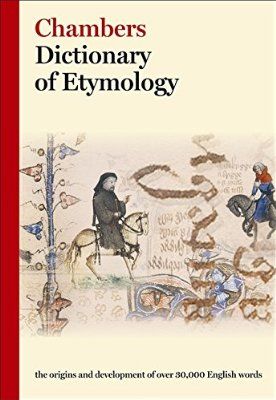

In rare cases, an imperfection in the original, such as a blemish or missing page, may be replicated in our edition. Forgotten Books uses state-of-the-art technology to digitally reconstruct the work, preserving the original format whilst repairing imperfections present in the aged copy. Find more at This book is a reproduction of an important historical work. About the Publisher Forgotten Books publishes hundreds of thousands of rare and classic books. The accentuation has also been carefully attended to, and different pronunciations have been given in cases where authorities are divided. The correct sound of every word is given by being written anew phonetically, thus obviating the use of a confusing array of marks. The Pronunciation is exhibited in the simplest possible manner.


It has been the aim throughout to avoid a distracting multiplicity of definitions - not to pile up unnecessary distinctions, but to emphasise only the real differences in the usage of words. But where the word still retains more or less of its original force, the Editor has endeavoured to increase the vividness of the definition by indicating the radical idea in italics. It is left to the Etymology to connect the present meaning with the root. In the Definitions the current meaning of a word is usually put first. From this class of words large additions have been made to the Vocabulary. Owing to the wide diffusion of scientific knowledge and the application of scientific discovery to the business of every-day life, many terms that were once purely technical are now entering into the current speech. It includes, however, all the obsolete words that occur in the Bible, the Apocrypia, and the Book of Common Prayer. The Vocabulary contains every English word sanctioned by good authority, with the exception of obsolete and very rare words, and terms exclusively technical. The Dictionary is intended as a guide in the study and practical use of the English Language and embraces the Meanings of Words, their Pronunciation, and Etymology. For greater convenience of reference, the arrangement of the words has been made strictly alphabetical throughout. An important etymological resource for the expert, it is also a useful reference source for the general reader. With over 30,000 entries, Chambers Dictionary of Etymology is a prestigious and scholarly dictionary that explains where English words come from. The changes in Etymology alone are so great as almost to constitute it a new work. 21.98 11 Used from 21.98 6 New from 47.74. The definitions of scientific terms have been carefully verified and the pronunciation corrected in accordance with the best authorities. The Vocabulary has been enriched by the insertion of a multitude of additional words. It is confidently hoped that the improvements, which are the result of a careful and exhaustive revision, will greatly increase its efficiency and popularity. Smith.Excerpt from Chambers's Etymological Dictionary of the English Language: A New and Thoroughly Revised Edition In view of the extraordinary progress which has been made in the historical study of the English Language, it has been found necessary to prepare an entirely New Edition of this Etymological Dictionary.

To show respect, one can add the addressee's last name after the salutation: Good morning, Mr. It is used as a greeting, never a farewell, unlike 'good night' which is used as the latter. Many people greet someone with the shortened 'morning' rather than 'good morning'. As a general rule, the greeting is normally used from 3:00 a.m. The use of 'good morning' is ambiguous, usually depending on when the person woke up. The appropriate time to use such greetings, such as whether it may be used between midnight and dawn, depends on the culture's or speaker's concept of morning. Some languages that use the time of day in greeting have a special greeting for morning, such as the English good morning. Other languages, like Dutch and German, may use a single word – Morgen – to signify both "morning" and "tomorrow". English, unlike some other languages, has separate terms for "morning" and "tomorrow", despite their common root. The Modern English words "morning" and "tomorrow" began in Middle English as morwening, developing into morwen, then morwe, and eventually morrow.


 0 kommentar(er)
0 kommentar(er)
